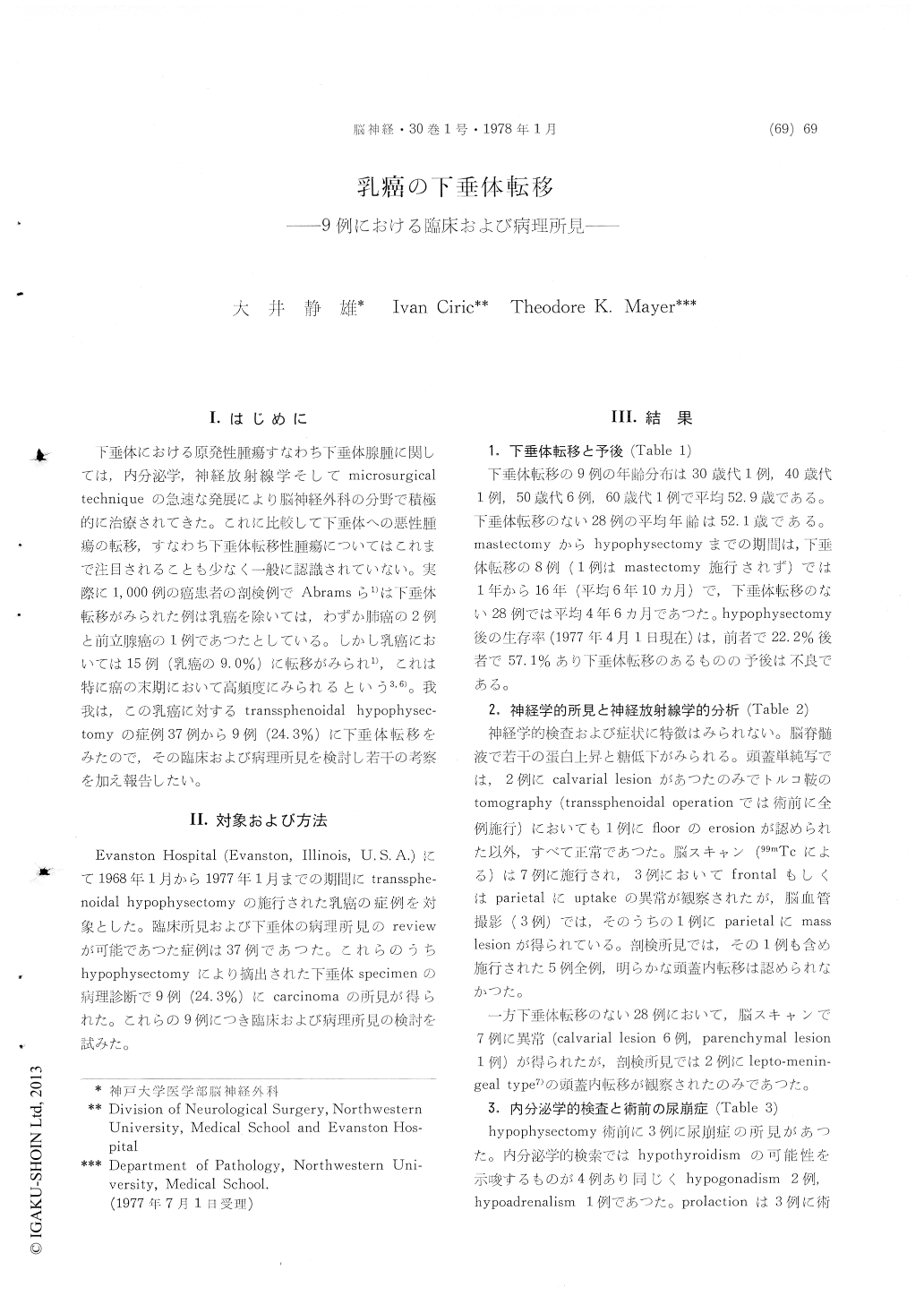Japanese
English
- 有料閲覧
- Abstract 文献概要
- 1ページ目 Look Inside
I.はじめに
下垂体における原発性腫瘍すなわち下垂体腺腫に関しては,内分泌学,神経放射線学そしてmicrosurgical techniqueの急速な発展により脳神経外科の分野で積極的に治療されてきた。これに比較して下垂体への悪性腫瘍の転移,すなわち下垂体転移性腫瘍についてはこれまで注目されることも少なく一般に認識されていない。実際に1,000例の癌患者の剖検例でAbramsら1)は下垂体転移がみられた例は乳癌を除いては,わずか肺癌の2例と前立腺癌の1例であつたとしている。しかし乳癌においては15例(乳癌の9.0%)に転移がみられ1),これは特に癌の末期において高頻度にみられるという3,6)。我我は,この乳癌に対するtranssphenoidal hypophysec—tomyの症例37例から9例(24.3%)に下垂体転移をみたので,その臨床および病理所見を検討し若干の考察を加え報告したい。
Metastatic carcinoma was found in 9 pituitary glands (24%) of 37 patients undergoing trans-sphenoidal hypophysectomy for diffuselly metastatic breast carcinoma. In all cases the preoperative neurological examination was negative, as were neuroradiological studies, including skull X-ray, tomograms of the sella turcica, brain scan, and angiography. Diabetes insipidus, however, was seen more frequently in patients with pituitary metastasis preoperatively (3 of 9) and postoperatively (8 of 9). Four of the nine patients with pituitary metastasis developed severe diabetes insipidus, which continued more than one month, while similar severe disease was seen in three of twenty-seven cases with no pathological evidence of pituitary metastasis.
The prognosis in patients with pituitary metastasis was poor, with seven of the nine dying with an average survival of eighteen months. Pathological studies disclosed metastatic lesions in the anterior lobe (78%), posterior lobe (44%), and stalk (11%).
The study emphasized that pituitary metastases, usually considered to be rare, occurred in 24% of patients with diffusely metastatic breast carcinoma. Such metastases correlate with the development of severe diabetes insipidus and with poor prognosis.

Copyright © 1978, Igaku-Shoin Ltd. All rights reserved.


